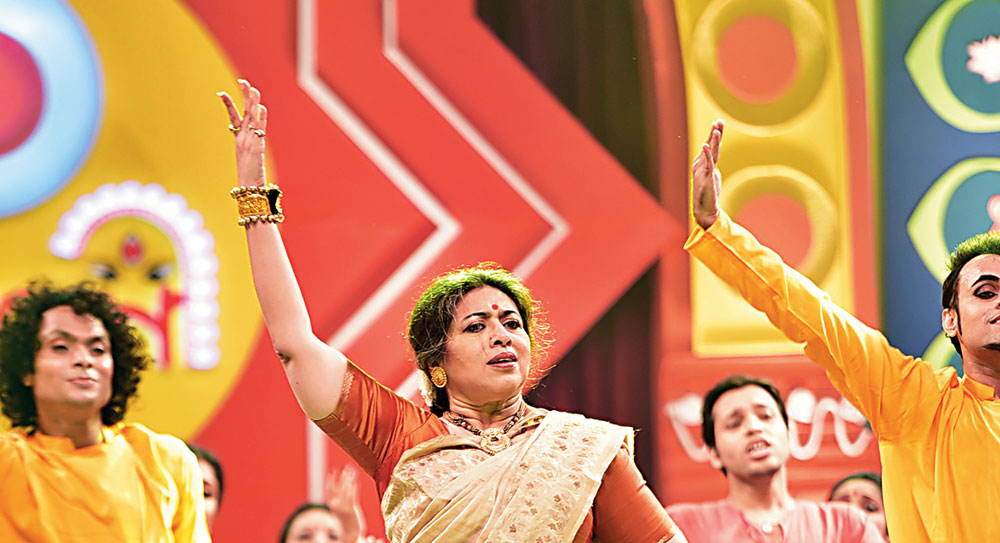Dance style: Uday Shankar style.
The start: I was eight years old when I started dancing.
Dance as therapy: Dance is an outlet, through which you can express your inner self. Whenever there is a festival or a moment of collective happiness, people dance. That is how the folk dances came into being. When you are performing with no inhibition, you are closest to God and that itself is a great therapeutic feeling and that is what keeps me going. It really takes away all the tiredness and negativity from my life.
A comforting dance piece: There are a couple of dance pieces that comfort me. One of them is Yashodhara on one of Ananda’s (Shankar) beautiful music. It really stirs me and touches my soul. I also love performing this piece called Serenity.
Who do you look up to? My mother-in-all (Amala Shankar)... my guru.
A choreography you are working on: It’s a piece called Maati. It is on being dislocated from your home and how it feels.
Importance of dance in your life: I am a doctor’s daughter but I was obsessed with dance. I was lucky that my parents understood and allowed me to nurture my love for dance. From teaching to workshops to rehearsals, my daily life revolves around dance.
Your message on International Dance Day: Dancers all over the world speak one language and there is no demarcation. It is a seamless body of people across the globe and that is what makes this an important day to celebrate. As an artiste, I feel this is what is needed now. We do not need any demarcation on the basis of colour, creed and religion.
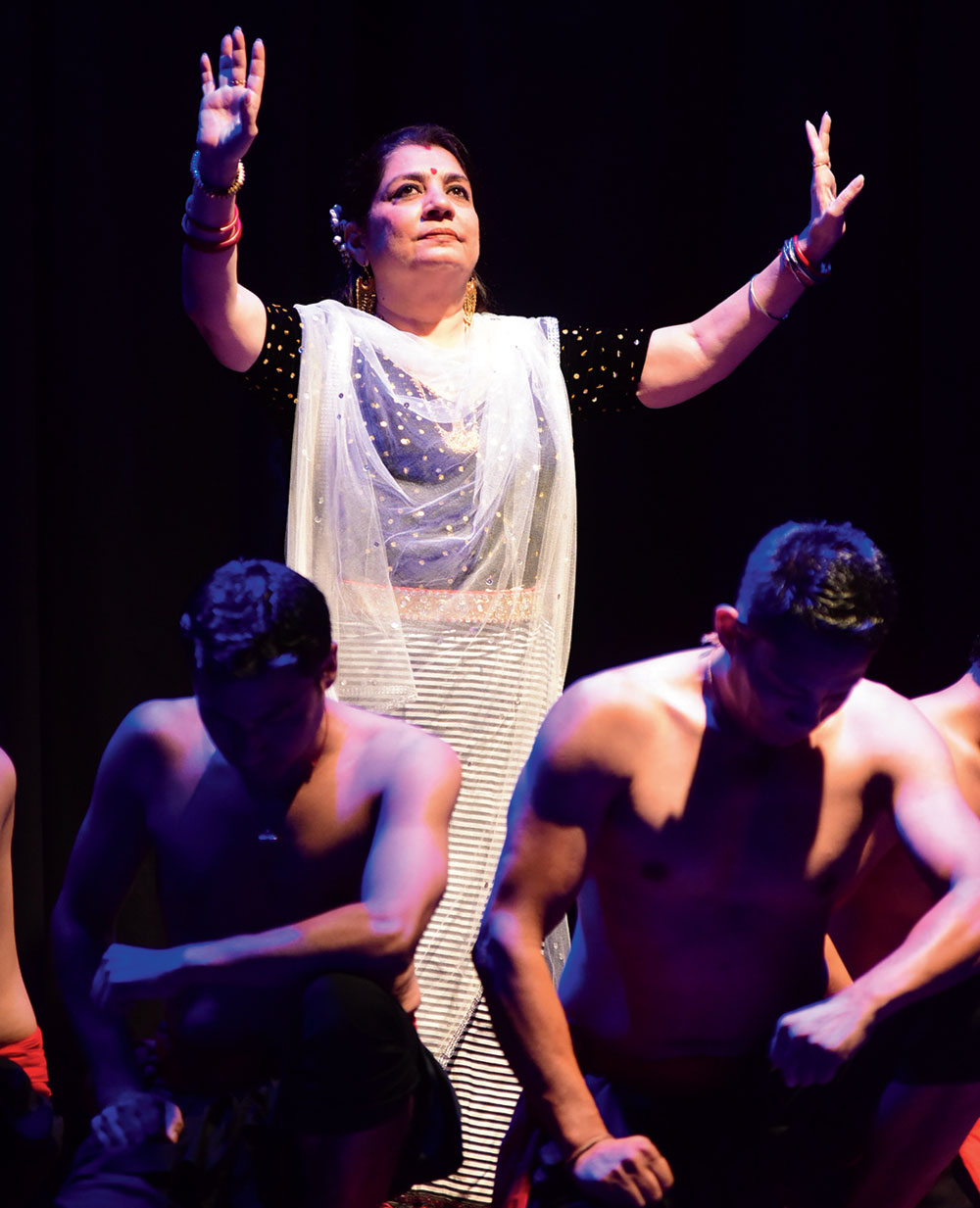
Priti Patel Picture: Agencies
Dance style: Manipuri.
The start: I started dancing at the age of five in 1965.
Dance as therapy: I have been practising dance as a therapy from 1990. It is a therapeutic medium through which one can release his or her emotions and various feelings. One goes through a lot of ups and downs but when you are rehearsing, it makes you feel positive. It removes sadness for the time being and that is the power of dance.
A comforting dance piece: I always go back to my traditional dance pieces, the ones I used to do when I started training, which included warm-up exercises too.
There is this one piece, which is done by children called Krishna Nartan. It is just Krishna happily dancing. At this age I cannot perform it on stage but at rehearsal I simply let go.
Who do you look up to? All the stalwarts, like Yamini Krishnamurthy and Sonal Mansingh, but most importantly, Pandit Birju Maharajji. I met him recently... when he turned 80... and I could see him full of life, there was an aura around him.
A choreography you are working on: I am working on a piece called Dancing Thread, which is a tribute to different handlooms of India.
Importance of dance in your life: I live, sleep, eat and drink dance. I don’t think I can do without it. Also, I worship through my dance. Manipuri dance is a form of worship and every year I offer my dance at a temple in Manipur.
Your message on International Dance Day: Performing art should not be lost to the electronic media. It’s so easy to sit at home and change channels but the whole beauty of watching a live performance is different.
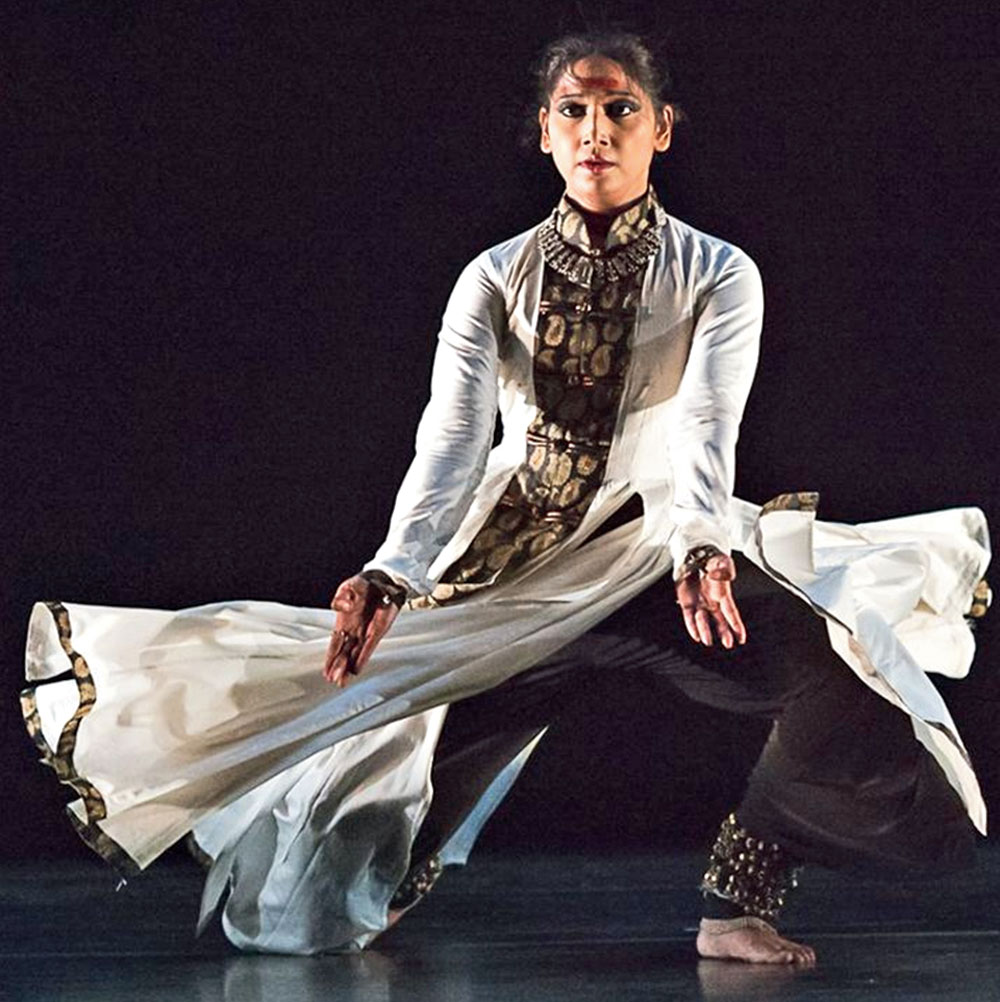
Mitul Sengupta Picture: Agencies
Dance style: Kathak and contemporary dance.
The start: I started dancing at the age of three.
Dance as therapy: I feel movement therapy is a psycho-physical exploration where one gets the freedom to express ‘self’ beyond any boundaries, judgement and societal constraints.
A comforting dance piece: Desolate, the voices of the trapped, is a comforting piece. It voices the courage of the souls who have been brave enough to fight and live against all odds and hold their heads high in pride. I also find comfort in practising at my studio because in that space it’s only me and the divinity that I share.
Who do you look up to? My mentor and guru Ronnie Shambik Ghose, who has nurtured me and made me the person I am.
A choreography you are working on: I am presently working as a dancer and choreographer at the Phoenix Dance Theatre, UK, for the production called Black Waters, which will talk about the lives in Kala Pani, the Andaman jail.
Importance of dance in your life: Dance is my identity and I am nothing without dance.
Your message on International Dance Day: Keep your dreams alive and dance like this is your last dance.
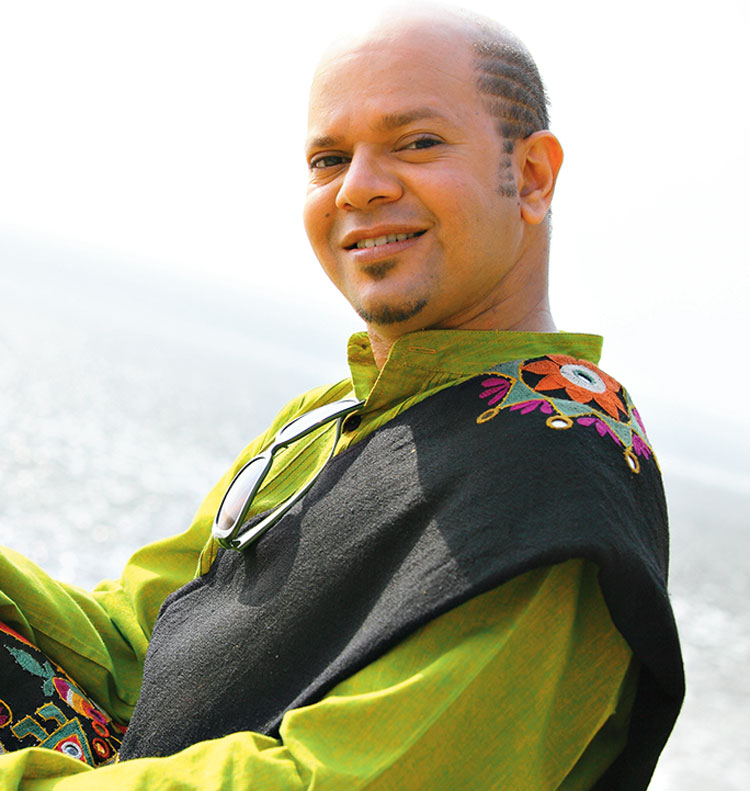
Sudarshan Chakravorty Picture: Agencies
Dance style: Organic contemporary dance, fusing Indian aesthetics and Western dance techniques.
The start: I started performing from the age of three without knowing whether I wanted to be a dancer, but my career started with my dance company Sapphire Creations in 1992.
Dance as therapy: Any artistic engagement can be therapeutic. Organic contemporary dance transforms the chaotic energy within into creative aesthetics. It also recontextualises the idea of body, self and space. It enhances self-esteem and so gives a new sense of strength, confidence and happiness, which works as therapy.
A comforting dance piece: A dance piece, Hasya pele hasya kori... nritya pele naachi, that I had performed as a child. It was a completely hilarious dance piece for a community programme where my mother hand-painted the costumes. It acts as a cushion whenever I am disturbed.
Who do you look up to? My inspirations are Manjusri Chaki Sarkar and Narendra Sharma.
A choreography you are working on: I am reviving two of my old productions — Rituranga and Parivahitam.
Importance of dance in your life: For me dance has been an anchor, which salvaged me from the worst of situations. It gave me my face, identity, value and self-esteem.
Your message on International Dance Day: I have been travelling a lot the last two years, which made me realise that dance blurs all boundaries and differences. Dance becomes a united voice of empowerment, celebrating life.
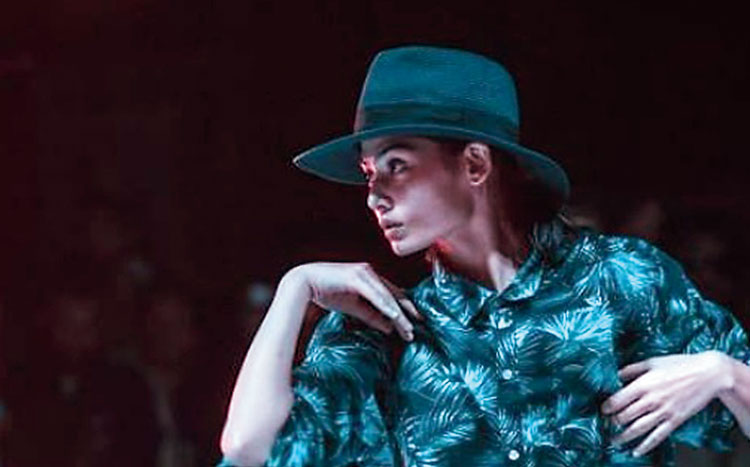
Mekhola Bose Picture: Agencies
Dance style: Freestyle.
The start: I was around 18-19 years old.
A comforting dance piece: Yoshie vs Salah locking battle in Street Dance Kemp because after watching that I got really motivated to dance.
A choreography you are working on: I’m working on developing my skill set and exploring different techniques and ideas.
Importance of dance in your life: Dance has helped me find a connection between my mind, body and soul. It has also given me the tools to explore my thoughts.
Your message on International Dance Day: Play that funky music.
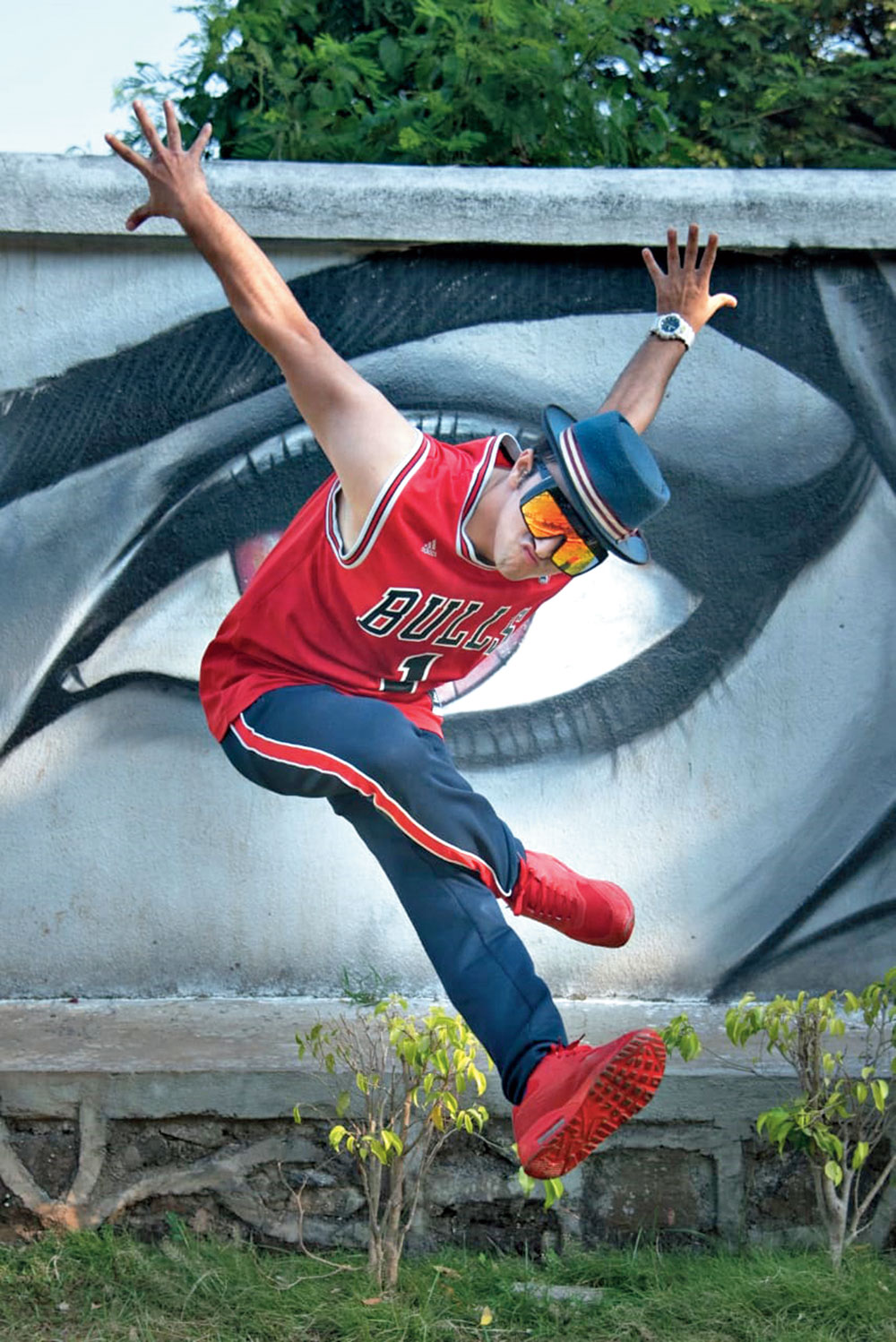
Harshvardhan Bhan Picture: Agencies
Dance style: Freestyle but mainly popping, locking, hip-hop, choreography and Bollywood.
The start: I remember my elder sister copying Prabhudeva’s steps and I used to copy her. But I started dancing professionally 10 years ago.
A comforting dance piece: My performance to the tunes of Saiyaan by Kailash Kher on the sets of Bindass Naach, a reality show, on Bindass channel. I was being mentored by Jaja Vankova, who gave me a standing ovation.
Who do you look up to? Mr. Wiggles from the US and Salah from France.
A choreography you are working on: I’m currently working on making conceptual dance videos, which are like short stories through dancing.
Importance of dance in your life: Dance has changed my life completely. I have travelled to more than 80 cities in India. Right now I’m trying to give back to my dance whatever I have received from it by just being in the moment. I let the music make me dance every day.
Your message on International Dance Day: Some dance to remember while some dance to forget. One should dance to remember so that you can never forget to dance. At the end of the day we’re all dancing to the tunes of our own problems, so might as well dance our heart out.

